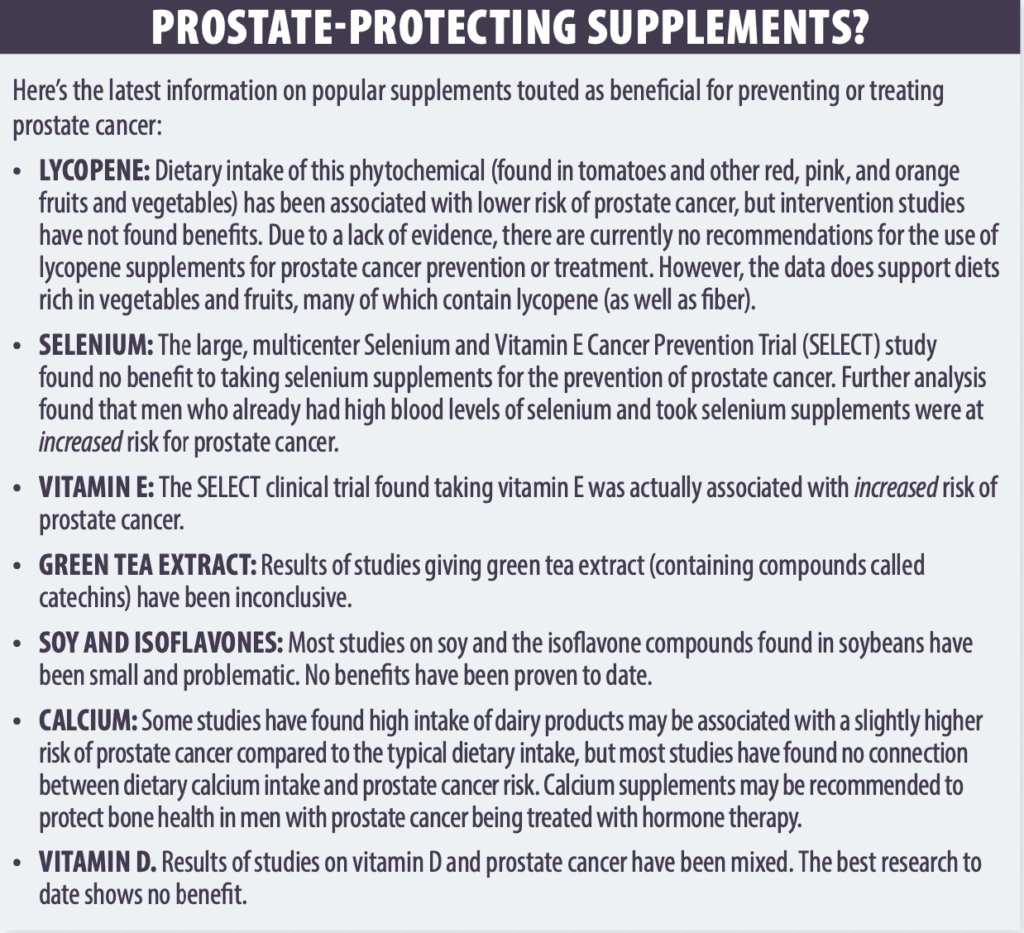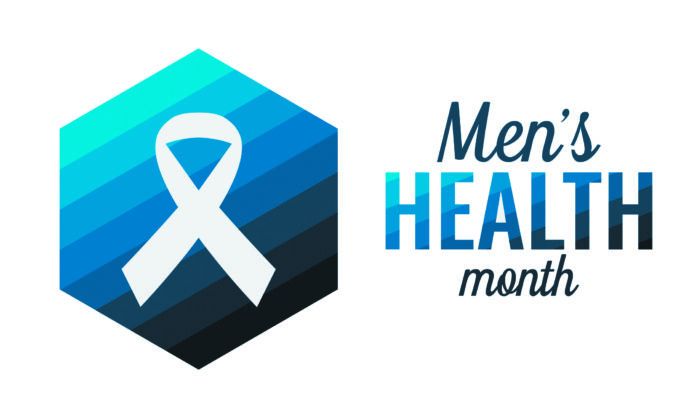According to the American Cancer Society, about one in eight men in the U.S. will be diagnosed with prostate cancer in his lifetime. Although most men with this disease will not die from it, prostate cancer is still the second leading cause of cancer death in American men (after lung cancer).
“As men age, prostate cancer becomes an increasingly relevant health problem,” says Paul Mathew, MD, a genitourinary oncologist and associate professor of medicine at Tufts University School of Medicine. About sixty percent of prostate cancer diagnoses are in men ages 65 and over. Men with African ancestry and those with a family history of prostate cancer are at increased risk of developing the disease.
Prevention. “We don’t have a good understanding as to what are optimal diet and lifestyle choices for reducing risk of developing prostate cancer,” says Mathew. A 2023 analysis found that dietary fiber intake from foods like legumes (beans, lentils, peas, and peanuts) and insoluble fibers from foods like fruits, nuts, seeds, vegetables, and whole grains may be associated with lower risk of prostate cancer. Additionally, a compound called lycopene found in tomatoes and other red, pink, and orange fruits and vegetables shows some promise, but nothing has yet been proven effective.
Taking lycopene or other compounds as supplements is not recommended (see Prostate-Protecting Supplements? on page 7). “People need to understand that supplements can actually be harmful,” says Mathew. We can’t anticipate the effect on our bodies of taking higher doses of specific nutrients or phytochemicals than those we’d normally get through dietary intake. According to the American Cancer Society, most research suggests that a healthy dietary pattern including plenty of fruits and vegetables is probably more beneficial than taking dietary supplements. It is important to talk to your healthcare provider about any supplements you are taking or are considering starting.
After Diagnosis. “If you have an established diagnosis of prostate cancer, we recommend a heart-healthy diet with plenty of fruits and vegetables and minimal animal fats,” says Mathew. “Watch your calories to help control weight and be physically active to keep your bones and muscles strong.”
➧ Talk About Screening. Discuss the pros and cons of PSA screening with your healthcare provider. ➧ Get Fiber. A health dietary pattern with plenty of fiber-rich foods like fruits, vegetables, legumes, whole grains, nuts, and seeds is good for overall health and has been associated with lower risk of prostate cancer. ➧ Manage Other Factors. Keep blood sugar and LDL cholesterol levels under control and do what you can to keep your weight in a healthy range. ➧ Move and Resist. Both aerobic and strength training activities are important for general health and quality of life (and they’re highly recommended if you’re undergoing hormone therapy for prostate cancer).
For individuals receiving hormone therapy, Mathew recommends 800 to 2,000 IU of vitamin D (depending on the individual’s blood levels) and 1,500 milligrams of calcium carbonate divided into two daily doses to help keep bones strong.
“Uncontrolled diabetes correlates with increased prostate cancer mortality,” says Mathew. “Check your blood sugar regularly and work with your healthcare provider to keep blood sugar levels under control.” A recent finding suggests that, for men who have been diagnosed with prostate cancer and also have high LDL cholesterol levels, taking statins to lower LDL cholesterol is associated with lower risk of prostate cancer death.
What to Do. Men over 55 years old should discuss the risks and benefits of prostate cancer screening with their healthcare provider. Those of African descent or with a family history of prostate cancer may want to start screening earlier. The current recommended screening tool is a blood test that measures levels of prostate specific antigen (PSA). Men with prostate cancer may have higher levels of PSA in their blood. (The U.S. Preventive Services Task Force has found insufficient evidence to recommend the alternative screening test, the digital rectal exam.) “Since the advent of PSA-based prostate cancer screening, deaths from prostate cancer have declined by nearly 50 percent,” says Mathew. “Approximately 40 percent of this decline has been attributed to screening alone.”

This test is not foolproof, however. It misses some cancers and finds some that are never going to develop into a problem. “There is a potential for harm in overdiagnosis,” says Mathew. “Fortunately, the medical community is much more aware of this problem and now practices active surveillance more often. This means we monitor the cancer and only recommend surgery or radiation when it becomes necessary.”
In addition to appropriate screening, a healthy lifestyle, including a diet rich in fruits, vegetables, legumes, and whole grains, is your best defense against developing prostate cancer—and the best way to stay healthy through any necessary treatment if you receive a prostate cancer diagnosis.





















